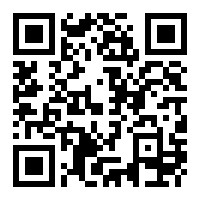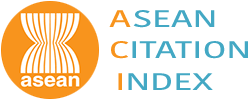Information-Motivation-Behavioral Skill in Diabetes Self-management Using Structural Equation Modeling Analysis
Abstract
Keywords
Full Text:
PDFReferences
1. International Diabetes Federation. IDF Diabetes Atlas Ninth Edition 2019. Brussels: International Diabetes Federation; 2019.
2. Afroz A, Zhang W, Loh AJW, Lee DXJ, Billah B. Macro- and micro-vascular complications and their determinants among people with type 2 diabetes in Bangladesh. Diabetes & Metabolic Syndrome: Clinical Research & Reviews. 2019; 13 (5): 2939-2946.
3. Badan Penelitian dan Pengembangan Kesehatan. Hasil Utama Riskesdas 2018. Jakarta: Kementerian Kesehatan Republik Indonesia; 2018.
4. Badan Penelitian dan Pengembangan Kesehatan. Hasil Utama Riskesdas 2013. Jakarta: Kementerian Kesehatan Republik Indonesia; 2013.
5. Direktorat Pencegahan dan Pengendalian Penyakit Tidak Menular. Infodatin: Tetap Produktif, Cegah, dan Atasi Diabetes Mellitus. In: Widiantini W. Jakarta: Kementerian Kesehatan Republik Indonesia; 2020.
6. Perkumpulan Endokrinologi Indonesia. PEDOMAN PENGELOLAAN DAN PENCEGAHAN DIABETES MELITUS TIPE 2 DI INDONESIA 2021. Jakarta: PB PERKENI; 2021.
7. Anani S, Udiyono A, Ginanjar P. Hubungan Antara Perilaku Pengendalian Diabetes dan Kadar Glukosa Darah Pasien Rawat Jalan Diabetes Melitus (Studi Kasus di RSUD Arjawinangun Kabupaten Cirebon). Jurnal Kesehatan Masyarakat. 2012; 1 (2): 466-78.
8. Lattal KA, Perone M. Handbook of Research Methods in Human Operant Behavior. New York: Springer Science & Business Media; 1998.
9. Risnasari N. HUBUNGAN TINGKAT KEPATUHAN DIET PASIEN DIABETES MELLITUS DENGAN MUNCULNYA KOMPLIKASI DI PUSKESMAS PESANTREN IIKOTA KEDIRI. Efektor. 2014; 25 (1): 15-19.
10. American Diabetes Association. Standards of Medical Care in Diabetes—2013. Diabetes Care. 2012; 36 (Supplement_1): S11–66.
11. Mahmud FR, Sudirman S, Afni N. FAKTOR-FAKTOR YANG BERHUBUNGAN DENGAN PENYAKIT DIABETES MELITUS DI RUANG POLI INTERNA RSUD MOKOPIDO KABUPATEN TOLITOLI. Jurnal Kolaboratif Sains. 2018; 1 (1): 168-175.
12. Farida I. Determinan Perilaku Manajemen Perawatan Diri pada Pasien Diabetes Melitus Tipe 2 di Kota Tangerang Selatan. Jurnal Ilmu Kesehatan Masyarakat. 2018; 7 (4): 207-17.
13. Chang SJ, Choi S, Kim SA, Song M. Intervention Strategies Based on Information-Motivation-Behavioral Skills Model for Health Behavior Change: A Systematic Review. Asian Nursing Research. 2014; 8 (3): 172–81.
14. Hariawan H, Fathoni A, Purnamawati D. HUBUNGAN GAYA HIDUP (POLA MAKAN DAN AKTIVITAS FISIK) DENGAN KEJADIAN DIABETES MELITUS DI RUMAH SAKIT UMUM PROVINSI NTB. Jurnal Keperawatan Terpadu. 2019; 1 (1): 1-7.
15. Komariah K, Rahayu S. HUBUNGAN USIA, JENIS KELAMIN DAN INDEKS MASSA TUBUH DENGAN KADAR GULA DARAH PUASA PADA PASIEN DIABETES MELITUS TIPE 2 DI KLINIK PRATAMA RAWAT JALAN PROKLAMASI, DEPOK, JAWA BARAT. Jurnal Kesehatan Kusuma Husada. 2020; 11 (1): 41-50.
16. Nurhidayah, Agustina V, Rayanti RE. Penerapan Perilaku Pencegahan Penyakit Diabetes Mellitus Menggunakan Health Belief Model Di Puskesmas Sidorejo Lor – Salatiga. Jurnal Keperawatan Muhammadiyah. 2020; 5 (2): 61-69.
17. Hair Jr JF, Hult GTM, Ringle CM, Sarstedt M, Danks NP, Ray S. Partial Least Squares Structural Equation Modeling (PLS-SEM) Using R: A Workbook. Cham: Springer; 2021.
18. Sulistyanawati N, Padmawati RS. Pengelolaan penyakit pada pasien diabetes melitus: akses layanan informasi pola konsumsi dan komplikasi gigi-mulut. Berita Kedokteran Masyarakat. 2017; 33 (8): 411-16.
19. Utomo MRS, Wungouw H, Marunduh S. KADAR HBA1C PADA PASIEN DIABETES MELITUS TIPE 2 DI PUSKESMAS BAHU KECAMATAN MALALAYANG KOTA MANADO. e-Biomedik. 2015; 3 (1).
20. Talaei M, Pan A, Yuan JM, Koh WP. Dairy intake and risk of type 2 diabetes. Clin Nutr. 2018; 37 (2): 712–8.
21. Fitriyah L, Sunarti S. Physical Activity Improves Muscle Strength and Reduces Inflammatory Markers in Diabetic Elderly Patients. Jurnal Kedokteran Brawijaya. 2014; 28 (2): 155-8.
22. Ernawati E, Setiawati EP, Kurniawan T. PENGARUH MOTIVASI INTERNAL DAN EKSTERNAL TERHADAP DIABETES SELF MANAGEMENT DI WILAYAH KECAMATAN GOMBONG KABUPATEN KEBUMEN. Jurnal Sistem Kesehatan. 2015; 1 (2): 55-62.
23. Nusantara AF. IMB (INFORMATION, MOTIVATION, BEHAVIORAL SKILL) PADA SELF CARE PASIEN DM TIPE 1 DI KABUPATEN PROBOLINGGO [Thesis]. Surakarta: Universitas Muhammadiyah Yogyakarta; 2016.
24. Pahlawati A, Nugroho PS. Hubungan Tingkat Pendidikan dan Usia dengan Kejadian Diabetes Melitus di Wilayah Kerja Puskesmas Palaran Kota Samarinda Tahun 2019. Borneo Student Research. 2019; 1 (1): 1-5.
25. Kusuma H, Hidayati W. HUBUNGAN ANTARA MOTIVASI DENGAN EFIKASI DIRI PADA PASIEN DIABETES MELLITUS TIPE 2 DI PERSADIA SALATIGA. Jurnal Keperawatan Medikal Bedah. 2013; 1 (2): 132-141.
26. Yuanita A, Wantiyah W, Susanto T. Pengaruh Diabetes Self Management Education (DSME) terhadap Resiko Terjadinya Ulkus Diabetik pada Pasien Rawat Jalan dengan Diabetes Mellitus (DM) Tipe 2 di RSD dr. Soebandi Jember (The Influence of Diabetes Self Management Education (DSME) to The Risk. Pustaka Kesehatan. 2014; 2 (1): 119-124.
27. Susanti CE, Tedjasuksmana B. Effect Of Knowledge On Nutrition Diet Behavior With Attitude To Mediation Functional Foods For Diabetes Mellitus Patients In Surabaya. Conference in Business, Accounting, And Management. 2012; 1 (1): 151-164.
DOI: http://dx.doi.org/10.21109/kesmas.v18i1.6255
Refbacks
- There are currently no refbacks.































